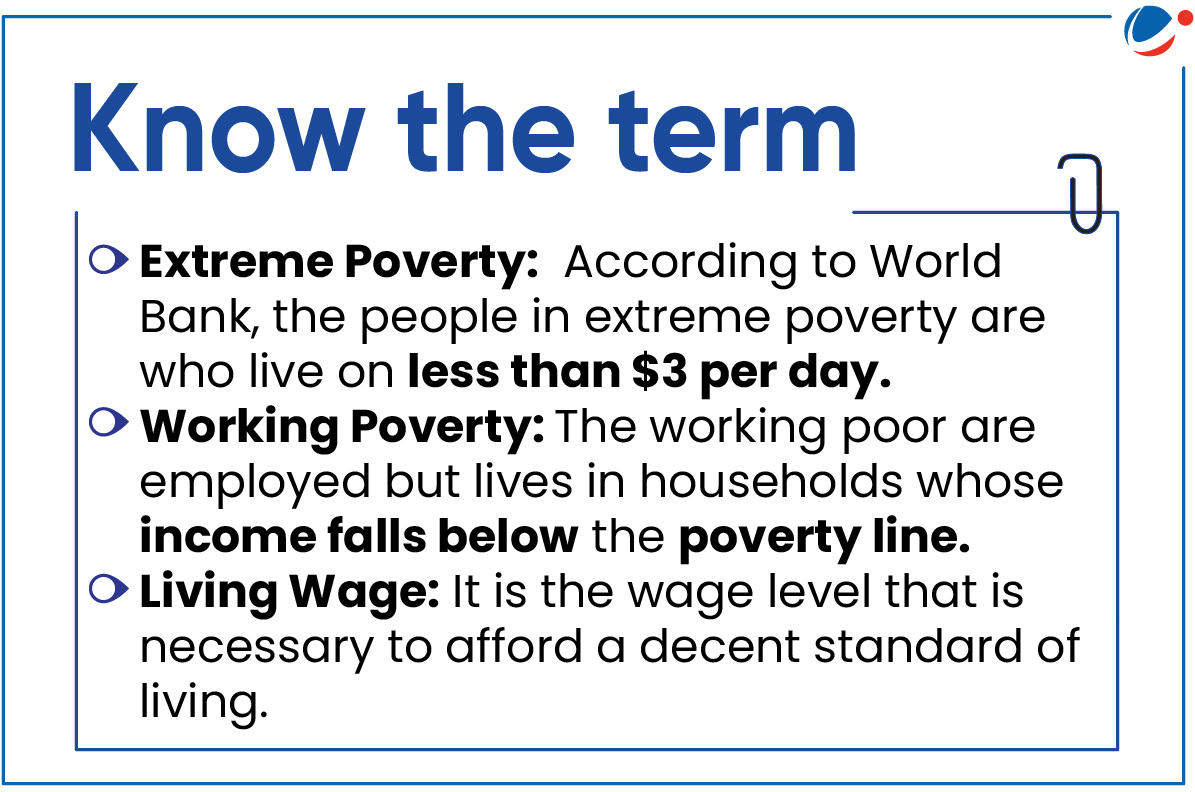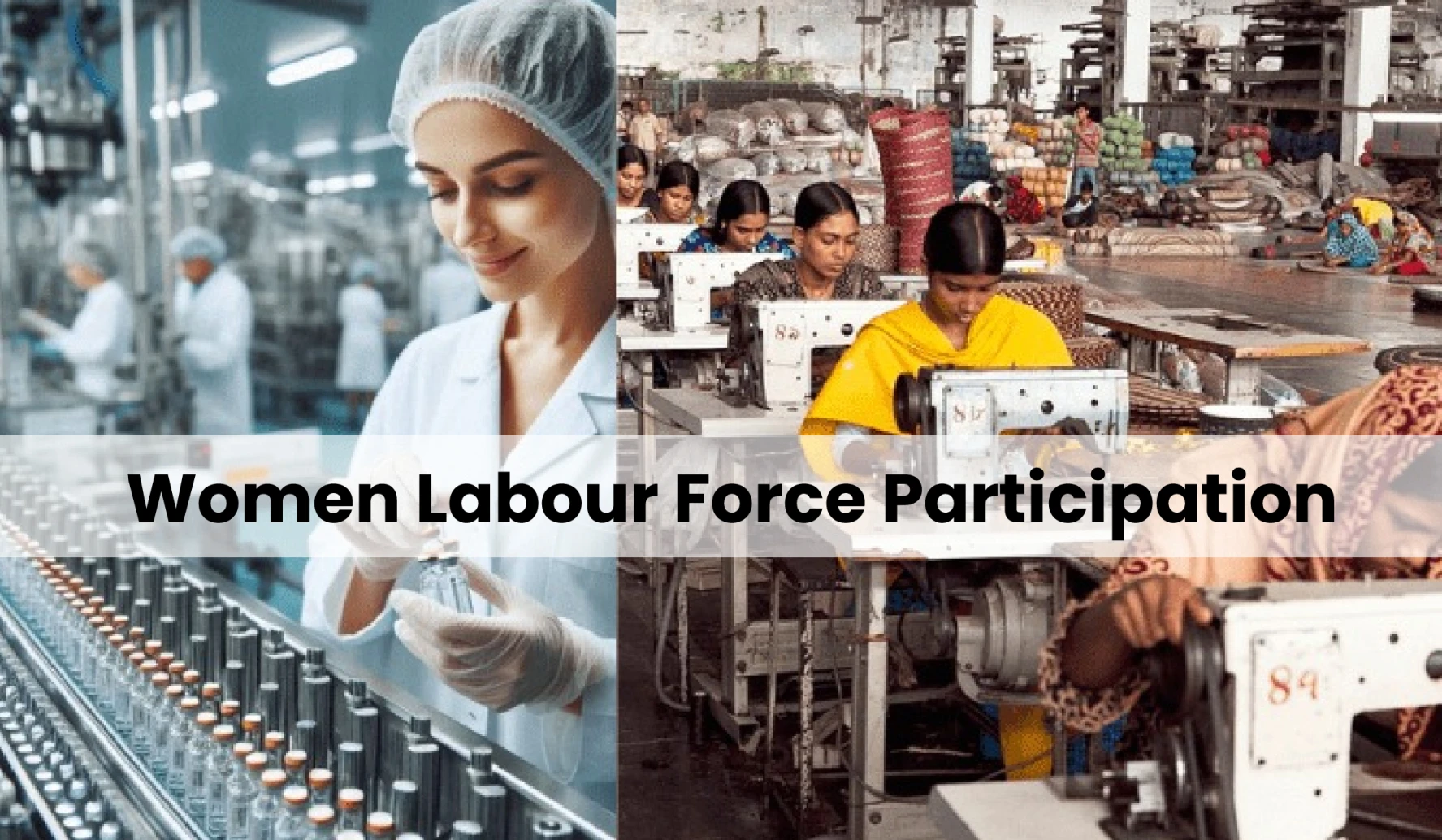Why in the News?
Recently, the International Labour Organization (ILO) released a report titled 'The state of social justice: A work in progress'.
More on the News
- The report has been released ahead of the Second World Summit for Social Development in Doha (November, 2025) that marks 30 years of the landmark 1995 Copenhagen Summit on Social Development held in Denmark.
- The summit adopted the Copenhagen Declaration on Social Development and the Copenhagen Programme of Action.
- These documents outlined ten key commitments e.g., Eradicating poverty, Achieving full and productive employment, Promoting social integration and Equality between men and women etc.
- The 2025 report provides an extensive overview of the state of social justice globally, examining progress and persistent challenges across several key pillars.
What is Social Justice?
- It means that "all human beings, irrespective of race, caste, creed or sex, have the right to pursue both their material well-being and their spiritual development in conditions of freedom and dignity, of economic security and equal opportunity".
- It helps build trust, enhances legitimacy and unlocks productive potential for sustained inclusive growth, peace and stability.


Key Achievements in social Justice (According to Report)
- Decline in Extreme Poverty: From 39% (1995) to 10% (2025) while working poverty dropped from 28% to 7%.
- Increased Social Protection Coverage: For the first time in history, more than half the world's population is covered by at least one social protection scheme.
- Reduced Gender gap in Labour Force Participation: From 26% to 24% points from 2005 to 2025.
- Decline in Inequality: Inequality between countries has been falling since the early 2000s, due to rising worker productivity in middle-income countries.
- Child Labour: Declined from 20.6% in 1995 to 7.8% in 2024.
Key Achievements in Social Justice in India:
|
Key Concerns to Achieve Social Justice in recent times:
- Challenges related to Fundamental human rights:
- Wage Gap: In 2025, the earnings ratio between men and women is 78%.
- At the current rate, the wage gap will take 50–100 years to close.
- Child Labour: 138 million children aged 5–17 are child labour, with almost 50% engaged in hazardous labour.
- Forced Labour: People in forced labour from 2016 to 2021 have risen from 24.9 million to 27.6 million.
- Wage Gap: In 2025, the earnings ratio between men and women is 78%.
- Challenges related to Equal access to opportunities:
- Inequality: The top 1% of people still controls 20% of income and 38% of wealth.
- Informal employment: It accounts for approximately 58 % of total employment.
- Accessibility to basic Services: E.g., 1 in 4 lacks access to clean water
- Challenges related to Fair transitions:
- Environmental transition: Measures needed to limit global warming to a maximum of 2°C may lead to job losses of around 6 million (Primarily in fossil fuel sector).
- Digital transition: The latest ILO research indicates that around one in four jobs will likely be transformed by generative AI.
- Demographic transition: In labour markets, improving productivity and access to decent jobs (In most low- and upper-middle-income countries) remain paramount as well as addressing needs of an ageing workforce (In high- and upper-middle-income countries).
Key Initiatives for Social Justice
- Global:
- Global Coalition for Social Justice: Launched by the ILO in 2023, this initiative unites governments, worker and employer organizations, and other partners for social justice.
- Decent Work Agenda: ILO's Decent Work Agenda promotes opportunities for all people to obtain productive work with fair income, security, and social protection.
- ILO Declaration on Social Justice for a Fair Globalization: Adopted in 2008, this declaration places the Decent Work Agenda at centre of ILO's policies.
- Universal Declaration of Human Rights (1948): Sets out the fundamental human rights that every person is entitled to.
- Other Initiatives: The International Covenant on Economic, Social and Cultural Rights (1966), Global Alliance against Hunger and Poverty (G20), Sustainable Development Goals (SDGs) etc.
- India
- Constitutional Measures: E.g., Preamble ensures social, economic, and political justice, Fundamental Rights (E.g. Article 23), Directive Principles of State Policy (Article 38), etc.
- Legislative Measures: E.g., Protection of Civil Rights Act, 1955, Rights of Persons with Disabilities Act, 2016, SC and ST (Prevention of Atrocities) Act, 1989 etc.
- Institutional Measures: E.g., National Commission for Scheduled Castes (NCSC), National Commission for Women (NCW), etc.
- Welfare Measures: E.g., PM Awas Yojana, Ayushman Bharat – Pradhan Mantri Jan Arogya Yojana (PM-JAY), etc.
Way Forward
- Fair distribution
- Effective recognition of the right to collective bargaining, Update minimum wage policies and operationalize a living wage through a wage-setting process in line with ILO principles.
- Increase the efficacy of non-discrimination policies and enhance the sustainability, coverage and adequacy of social protection systems.
- Equal access to opportunities
- Strengthen Active labour market policies (ALMPs), including training and labour intermediation.
- Support sustainable enterprise measures and offer formalization pathways for micro- and small enterprises.
- The government shall provide employment subsidies, such as wage subsidies and hiring incentives.
- Implement well-designed public employment programmes. E.g., India's Mahatma Gandhi National Rural Employment Guarantee Act (NREGA).
- Fair Transition
- Adopt place-based strategies, such as investing in renewable energies in geographic areas where other energy production has been reduced.
- Need for policies like partial retirement and anti-age discrimination laws to retain older workers and support economic participation.
- Expansion in the provisions of paid leave to care for ageing family members.
Conclusion
Despite notable gains in poverty reduction, education, and gender inclusion, social justice remains an unfinished agenda. To sustain progress, nations must focus on reducing structural inequalities, expanding social protection, and ensuring that economic growth translates into dignity and opportunity for all.






